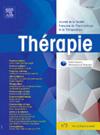[非处方非甾体抗炎药物:重点关注急性疼痛的治疗]。
IF 1.8
4区 医学
Q3 PHARMACOLOGY & PHARMACY
引用次数: 0
摘要
在法国,非甾体抗炎药(NSAIDs)是仅次于扑热息痛的第二大类镇痛药。一些非甾体抗炎药可在药剂师的建议下在柜台(OTC)购买,无需处方。非甾体抗炎药最近成为法国国家药品和医疗用品安全局(ANSM)发出的安全警示的主题,警示强调该药有加重某些细菌感染的风险。欧洲药品管理局(EMA)尚未确认这一信号,但不排除 "因掩盖感染症状而引起并发症的风险"。这些不同的信息可能会让医护人员感到困惑。本文献综述基于对近 200 篇科学出版物的分析,探讨了非甾体抗炎药在偏头痛、紧张性头痛、术后镇痛、急性肌肉骨骼和关节疼痛、痛经、病毒性呼吸道感染(包括严重急性呼吸系统综合征冠状病毒 2 (SARS-CoV-2))的非处方药治疗中的地位及其毒性。此外,还讨论了药剂师在无处方配发非甾体抗炎药方面的作用。非甾体抗炎药可在获取医疗服务日益困难的情况下提供快速有效的疼痛治疗。非甾体抗炎药的安全性令人放心,而且总体上已经得到了很好的证实,但如果开展一项特别研究,对 ANSM 发布的安全信号做出明确裁定,则可以加强其安全性。药剂师拥有相关知识和工具,可确保安全配发和合理使用非甾体抗炎药,无论是否有处方。引入风险最小化措施,如决策支持工具,可在确保安全配发非处方药物非甾体抗炎药方面取得进一步进展。本文章由计算机程序翻译,如有差异,请以英文原文为准。
Anti-inflammatoires non stéroïdiens en prescription médicale facultative : mise au point dans la prise en charge de la douleur aiguë
Les anti-inflammatoires non stéroïdiens (AINS) sont la deuxième classe d’antalgiques la plus utilisée en France derrière le paracétamol. Certains AINS sont disponibles sans ordonnance, sur conseil du pharmacien, donc à « prescription médicale facultative » (PMF). Les AINS ont récemment fait l’objet d’alertes de sécurité de la part de l’Agence nationale de sécurité du médicament et des produits de santé (ANSM) mettant en avant un risque d’aggravation de certaines infections bactériennes. Ce signal n’a pas été confirmé par Agence européenne du médicament (EMA) sans exclure un « risque de complications dues au masquage des symptômes d’infection ». Ces messages divergeant peuvent être source de confusions pour les professionnels de santé. Cette revue de la littérature, basée sur l’analyse de près de 200 publications scientifiques, examine la place des AINS dans la prise en charge en PMF de la migraine, des céphalées de tension, de l’analgésie postopératoire, des douleurs aiguës musculosquelettiques et articulaires, des dysménorrhées, des infections respiratoires virales, y compris le coronavirus 2 du syndrome respiratoire aigu sévère (SARS-CoV-2) ainsi que leur toxicité. Elle s’intéresse également au rôle du pharmacien dans la dispensation des AINS sans ordonnance. Les AINS permettent une prise en charge rapide et efficace de la douleur dans un contexte de difficulté croissante d’accès aux soins. Leur profil de sécurité est rassurant et globalement bien établi, mais pourrait être renforcé par la conduite d’une étude ad hoc pour statuer définitivement sur le signal de sécurité émanent de l’ANSM. Les pharmaciens disposent des connaissances et des outils pour sécuriser la dispensation et veiller à l’utilisation rationnelle des AINS avec ou sans ordonnance. La mise en place de mesures de minimisation de risque telles que des outils d’aide à la décision pourraient permettre d’aller plus loin dans la sécurisation de leur dispensation en PMF.
Non-steroidal anti-inflammatory drugs (NSAIDs) are the second most widely used class of analgesics in France, after paracetamol. Some NSAIDs are available over the counter (OTC), without a prescription, on the advice of a pharmacist. NSAIDs have recently been the subject of safety alerts from France's Agence nationale de sécurité du médicament et des produits de santé (ANSM), highlighting a risk of worsening certain bacterial infections. This signal has not been confirmed by the European Medicines Agency (EMA) although a “risk of complications due to masking of symptoms of infection” has not been ruled out. These divergent messages can be confusing for healthcare professionals. This literature review, based on an analysis of nearly 200 scientific publications, considers the place of NSAIDs in the OTC management of migraine, tension headaches, postoperative analgesia, acute musculoskeletal and joint pain, dysmenorrhea, viral respiratory infections, including severe acute respiratory syndrome coronavirus 2 (SARS-CoV-2) and their toxicity. The role of the pharmacist in dispensing NSAIDs without a prescription is also addressed. NSAIDs offer rapid and effective pain management in a context of increasingly challenging access to care. Their safety profile is reassuring and generally well established but could be strengthened by conducting an ad hoc study to rule on the safety signal issued by the ANSM definitively. Pharmacists have the knowledge and tools to ensure the safe dispensing and rational use of NSAIDs, with or without a prescription. The introduction of risk minimization measures, such as decision-support tools, could enable further progress in ensuring the safe dispensing of OTC NSAIDs.
求助全文
通过发布文献求助,成功后即可免费获取论文全文。
去求助
来源期刊

Therapie
医学-药学
CiteScore
3.50
自引率
7.70%
发文量
132
审稿时长
57 days
期刊介绍:
Thérapie is a peer-reviewed journal devoted to Clinical Pharmacology, Therapeutics, Pharmacokinetics, Pharmacovigilance, Addictovigilance, Social Pharmacology, Pharmacoepidemiology, Pharmacoeconomics and Evidence-Based-Medicine. Thérapie publishes in French or in English original articles, general reviews, letters to the editor reporting original findings, correspondence relating to articles or letters published in the Journal, short articles, editorials on up-to-date topics, Pharmacovigilance or Addictovigilance reports that follow the French "guidelines" concerning good practice in pharmacovigilance publications. The journal also publishes thematic issues on topical subject.
The journal is indexed in the main international data bases and notably in: Biosis Previews/Biological Abstracts, Embase/Excerpta Medica, Medline/Index Medicus, Science Citation Index.
 求助内容:
求助内容: 应助结果提醒方式:
应助结果提醒方式:


